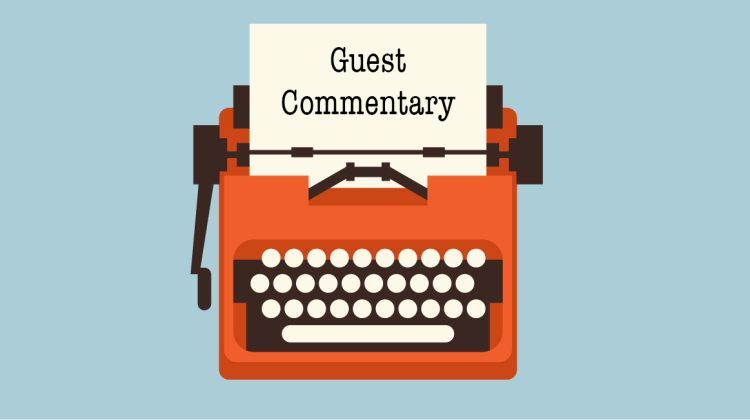David M. Shribman
NATIONAL PERSPECTIVE
Abraham Lincoln made the presidency a pulpit. Theodore and Franklin Roosevelt transformed the office into an engine of big government. John F. Kennedy made it a platform of inspiration. Presidents routinely take the office they inherit and reshape it to their own tastes, focus it on their own priorities, remake it in their own images.
It isn’t even a year into Donald Trump’s second term in the White House, and already he has transformed the presidency perhaps more profoundly than Andrew Jackson (who made it a vanguard of democracy), Woodrow Wilson (who made it an office of international engagement) or Jimmy Carter (who made it a tool to ensure human dignity and win human rights).
How, then has Trump remade the presidency?
It’s a question of immense importance, because the man or woman who comes next will take over a position that Trump has reimagined, reconfigured, redirected and remolded.
— The presidency now has new frontiers of power.
The office that Trump now occupies is far different from the one he assumed when Joe Biden departed the White House. Biden was a creature of Capitol Hill, steeped in the rhythms of Congress, respectful of the prerogatives of the legislative branch. Through 36 years in the Senate — more than half the biblical allotment for life — Biden had an intuitive feel for the distribution of power in Washington, the workings of the checks and balances, the conventionally acknowledged lanes to which generations of political figures kept.
Even in his first term, Trump knew little of this, though he dutifully acknowledged the counsel he received from establishment figures steeped in those conventions. This time is different because Trump is different: His claims, refuted by the establishment he so loathes, that he prevailed in 2020 served to reinforce his rogue instincts. Moreover, in freeing himself from the permanent Washington power structure, he freed himself from the restrictions his predecessors felt and respected.
Thus, Trump is free to make trade law without consultation, despite constitutional strictures placing trade within the purview of Congress. The next president now is free to do the same. Trump is free to dispatch troops to urban areas in police roles. The next president will be free to do that. Trump is free to dispatch American military assets to the Caribbean or to attack Iran without congressional approbation — the kinds of acts his predecessors did with trepidation. The next president will feel even less concern nor much respect for the War Powers Act.
— The presidency now is a bigger position than the one George W. Bush, Barack Obama or Biden occupied.
All three, plus those who preceded them, were major political and cultural figures. Each bestrode Washington and the nation as a colossus — but not in the way Trump does. More than FDR, who was not a prisoner of presidential constraints, and more than Lyndon Johnson, with his intimate knowledge of Congress and ability to identify the weak points of his colleagues and to exploit them, Trump is a giant figure not only in Washington, not only in the United States but across the globe.
Alice Roosevelt Longworth used to say that her father, Theodore Roosevelt, always wanted to be “the corpse at every funeral, the bride at every wedding and the baby at every christening.”
Trump may have behaved in the past as if he were the most important person on Earth, but now he is: prominent at every dinner table, the subject of conversation (and consternation) worldwide. Any American who has spent time abroad returns to the United States with tales of how no interaction — with the flight attendant, the bellhop, the waitstaff, friends, relatives and perfect strangers — is free from a comment, an aside, an imprecation about Trump.
— The presidency now is less dependent on historical precedent.
Never mind what previous presidents said or did. Trump feels free to ignore them, and so might his successor.
One of the traditions of the modern presidency that’s been revoked by Trump — an aspect of the job that his successor may feel no need to pursue — is the drive toward national unification. Previous presidents were, to be sure, partisan; they did not win their nominations without appealing to the narrow interests and traditional impulses of the party that sent them to the general election and to the White House. But every previous president sought national unity.
Richard Nixon, adept at exploiting divisions, nevertheless seized upon a placard a 13-year-old girl held at a 1968 Deshler, Ohio, campaign rally to adapt its “bring us together” message, saying, “That will be the great objective of this administration at the outset, to bring the American people together.”
Trump’s vision of unity is different, and perhaps the same will be said of his successor. The president speaks of unity in terms of his party, but not the country. This is a signature change in the nature of the presidency.
At the same time, Trump has abandoned the pastoral (“feel your pain”) role of the presidency that Bill Clinton pioneered. In his first term, Trump did visit Pittsburgh’s Tree of Life synagogue following the slaying of 11 Jewish people during prayer. In his second term, he has made few gestures, besides his appearance at the memorial service for the conservative activist Charlie Kirk, to calm the troubled and soothe the hurting.
— The presidency now is a daily drama.
The pace of Trump’s first term was fast. Now it’s exhausting.
Not a day passes without a new Trump-oriented policy change, a Trump executive order, a Trump peace plan, a Trump tariff proposal, a Trump troop mobilization, a Trump criticism of a foe, a Trump pardon, a Trump demand, a Trump attack on a judge or lawmaker, a Trump business initiative, a Trump trip abroad.
The president isn’t at all like Lawrence of Arabia, who, in the characterization of the famous writer and broadcaster Lowell Thomas, “had a genius for backing into the limelight.” Instead, Trump is attracted to the limelight like a huge moth.
All of which raises the question of whether the next president will want to maintain this pace. Or whether the country will yearn for a few quiet moments.
One way or another, the next president will take over an office far different from the one Trump acquired. The more things have changed, the less they have remained the same.
A Swampscott High School Class of 1972 member, David M. Shribman is the Pulitzer Prize-winning former executive editor of the Pittsburgh Post-Gazette.


